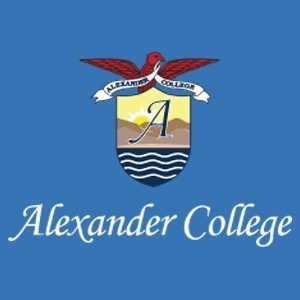Photos of university / #umanitoba
The Bachelor of Science in Computer Science at the University of Manitoba offers students a comprehensive and rigorous education in the foundational principles and advanced topics of computing. This program is designed for students interested in developing strong technical skills, understanding the theoretical underpinnings of computer science, and gaining practical experience through projects and research opportunities. The curriculum covers essential areas such as programming, data structures, algorithms, software engineering, computer systems, databases, artificial intelligence, machine learning, and cybersecurity. Students also have the flexibility to explore specialized fields like game development, mobile applications, and data science through elective courses and minors. The program emphasizes critical thinking, problem-solving, and collaborative skills, preparing graduates for diverse careers in technology, research, and academia, or for pursuing further studies in graduate programs. With access to state-of-the-art laboratories and industry partnerships, students benefit from hands-on learning experiences that connect theoretical knowledge with real-world applications. The Bachelor of Science in Computer Science at the University of Manitoba aims to develop not only technical expertise but also ethical and professional awareness, ensuring graduates are well-equipped to contribute innovatively and responsibly to the rapidly evolving field of computing. Graduates of this program will be prepared for careers in software development, network administration, data analysis, cybersecurity, and many other areas in the digital economy, or to continue their education in master's or doctoral programs. The program fosters a supportive academic community and encourages participation in research projects, internships, and co-op opportunities to enhance students' career prospects and professional growth.
The Bachelor of Science in Computer Science and Mathematics at the University of Manitoba offers students a comprehensive education that combines the foundational principles of computer science with the theoretical and practical aspects of mathematics. This interdisciplinary program is designed to equip students with the essential skills and knowledge necessary to excel in the rapidly evolving fields of technology and analytical sciences. Throughout the program, students will explore fundamental topics such as programming, algorithms, data structures, software development, and system design, along with advanced mathematical concepts including calculus, linear algebra, discrete mathematics, probability, and statistics.
Students will have the opportunity to engage in hands-on learning through laboratory work, projects, and research activities that foster problem-solving and analytical thinking. The curriculum is carefully structured to balance theoretical courses with practical applications, ensuring graduates are well-prepared for careers in software engineering, data analysis, artificial intelligence, cybersecurity, financial modeling, research, and further graduate studies. Additionally, the program emphasizes critical skills such as logical reasoning, mathematical modeling, and computational thinking, which are highly valued across various industries.
The program provides access to state-of-the-art computer laboratories, academic advising, and opportunities for internships and cooperative education placements. Faculty members are experts in their fields, actively involved in research that pushes the boundaries of knowledge in computer science and mathematics. Students are encouraged to participate in seminars, conferences, and collaborative projects to enhance their learning experience and professional development. Graduates from this program are equipped to contribute innovatively to technological advancements and scientific research, making significant impacts in academia, industry, and government sectors. Whether students choose to pursue further studies or enter the workforce directly, they will have developed a robust set of skills and a thorough understanding of computational and mathematical principles that will serve them throughout their careers.
Program Requirements: The Bachelor of Science in Computer Science and Mathematics at the University of Manitoba requires students to complete a total of 120 credit hours, which typically includes coursework in foundational sciences, core computer science and mathematics courses, as well as electives and general education requirements. Students must achieve a minimum cumulative grade point average (GPA) of 65% to graduate. The program is designed to provide students with comprehensive knowledge in algorithms, programming languages, software engineering, discrete mathematics, Probability and Statistics, linear algebra, calculus, and mathematical reasoning.
Students are expected to complete mandatory courses such as Introduction to Programming, Data Structures and Algorithms, Systems Programming, Discrete Mathematics, Calculus I and II, Linear Algebra, and Probability and Statistics. In addition, students should enroll in upper-level courses like Artificial Intelligence, Machine Learning, Software Development, Operating Systems, and Theoretical Computer Science, along with advanced mathematics courses such as Abstract Algebra, Real Analysis, and Number Theory. Elective courses allow students to explore specialized areas such as Cybersecurity, Data Science, or Computational Mathematics.
Beyond coursework, students are encouraged to participate in research projects, internships, and cooperative education placements that provide practical experience. Additional program components include communication skills development, ethics in computing, and teamwork. Students must also complete general education requirements in fields such as humanities, social sciences, and natural sciences, ensuring a well-rounded academic background. The program emphasizes the integration of mathematical theory with practical computing skills, preparing graduates for careers in academia, industry, or further study in graduate programs. To ensure student success, the program offers academic advising, resources for tutoring, and opportunities for involvement in computer science and mathematics clubs and organizations.
The University of Manitoba offers a variety of financial aid options to support students enrolled in the Computer Science and Mathematics programs. Funding opportunities include governmentStudent loans and grants, scholarships, entrance awards, and faculty-specific bursaries. Domestic students can access provincial and federal loan programs such as Manitoba Student Assistance Program (MSAP) and Canada Student Loans, which provide low-interest loans and repayable grants to eligible students based on financial need. International students may explore scholarships and bursaries offered specifically for international students, as well as external funding sources. The university's scholarship portal lists numerous awards for undergraduate students, including merit-based scholarships for high academic achievement and need-based bursaries aimed at supporting students from diverse backgrounds. Additionally, many faculty and department-specific awards are available for students demonstrating excellence in their chosen field. Work-study programs are also available, allowing students to gain practical experience while earning income to help cover educational expenses. Students are encouraged to apply early as many financial aid options are limited in number and competitive. Furthermore, the university provides information on external scholarships and funding opportunities from various organizations and government agencies. Graduate students enrolled in advanced degrees can access research assistantships, teaching assistantships, and fellowships, which provide stipends and tuition waivers. It is recommended that students visit the university’s financial aid office and the official website to obtain detailed eligibility criteria and application procedures. Overall, the university is committed to supporting its students financially, ensuring that they have access to the necessary resources to complete their studies successfully.
The University of Manitoba offers a comprehensive program in Computer Science and Mathematics designed to provide students with a solid foundation in both theoretical and applied aspects of these disciplines. The undergraduate Bachelor of Science (BSc) degree in Computer Science combines coursework in programming, software development, algorithms, data structures, computer systems, and artificial intelligence, preparing students for careers in software engineering, cybersecurity, data analysis, and more. The Mathematics component emphasizes pure and applied mathematics, including calculus, linear algebra, probability, statistics, and mathematical modeling, which are essential for data science, research, and advanced scientific applications. The program often offers specializations or streams such as theoretical computer science, software engineering, and computational mathematics to allow students to tailor their education to their interests and career goals. Students benefit from access to modern laboratories, research projects, and collaboration opportunities with faculty on innovative research in areas like machine learning, data science, cryptography, and computational biology. The university emphasizes experiential learning, encouraging internships, co-op positions, and undergraduate research, facilitating a smooth transition into the workforce or graduate studies. The program aims to develop analytical thinking, problem-solving skills, and technical proficiency, making graduates competitive in a rapidly evolving technological landscape. Facilities at the University of Manitoba support a dynamic learning environment, with resources such as computer labs, extensive library collections, and access to national and international research networks. Graduates of these programs are well-equipped to pursue careers in academia, industry, government agencies, and entrepreneurial ventures, or to continue their education through master's and doctoral programs. The programs are designed to meet the increasing demand for professionals with expertise in computer science and mathematics, both of which are integral to advancements in technology, data analysis, and scientific research.





